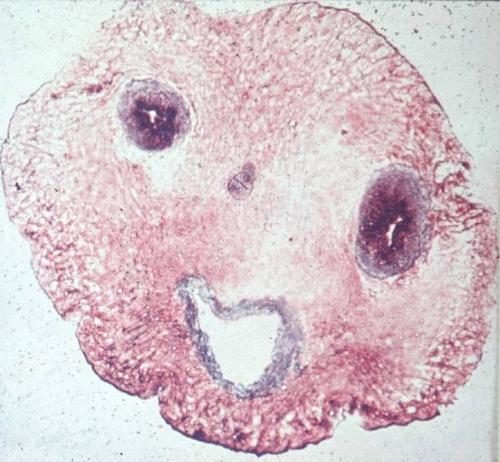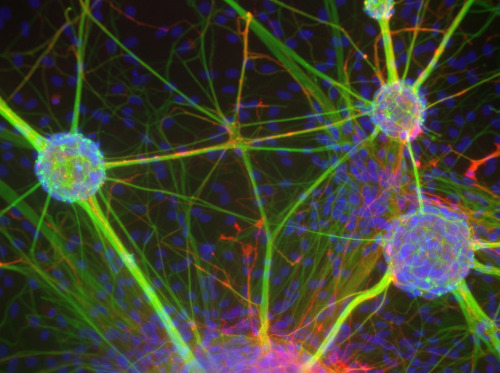Новые исследования описаны на http://www.scientificblogging.com/news_articles/cocaine_regulates_gene_expression_and_has_longlasting_impact_behavior
New research sheds light on how cocaine regulates gene expression in a crucial reward region of the brain to elicit long-lasting changes in behavior. The study in Neuron provides insight into the molecular pathways regulated by cocaine and may lead to new strategies for battling drug addiction.
It is well established that addictive drugs induce persistent changes in the brain's reward circuits. Previous research has indicated that addiction to drugs such as cocaine is associated with altered gene expression in the nucleus accumbens (NAc), a region of the brain that is involved in motivation, pleasure, and reward.
"Although we have known for some time that changes in gene expression contribute to the long-lasting regulation of the brain's reward circuitry that is seen during drug addiction, how those specific genes are regulated is not well understood," explains senior study author, Dr. Eric J. Nestler from the Department of Neuroscience at the Mount Sinai School of Medicine.
Dr. Nestler and colleagues combined sophisticated and highly sensitive genetic isolation and screening techniques to study regulation of gene transcription in the mouse NAc, including regulation of chromatin structure, after repeated administration of cocaine. The results of this novel analysis significantly refined the understanding of cocaine-regulated gene transcription in general, and advanced knowledge of the specific role of two transcription factors known to play a prominent role in cocaine-induced addiction.
The researchers also identified a previously unrecognized family of genes, called the sirtuins, as being involved in cocaine addiction in the NAc. Chronic cocaine administration was linked with an increase in sirtuin gene transcription while increased sirtuin activity in NAc neurons was associated with a potentiation of the rewarding effects of cocaine. Importantly, pharmacological inhibition of sirtuins in the NAc reduced the rewarding effects of cocaine and the motivation to self-administer the drug.
Taken together, the results identify a subset of genes that are highly likely to be targets of cocaine and shed light on the specific mechanisms that underlie cocaine-induced changes in the NAc. "Our findings underscore the vast clinical potential of the many new gene targets identified in this study for the development of more effective treatments of cocaine and potentially other drug addictions," concludes Dr. Nestler.
The researchers include William Renthal, The University of Texas Southwestern Medical Center at Dallas, Dallas, TX; Arvind Kumar, The University of Texas Southwestern Medical Center at Dallas, Dallas, TX; Guanghua Xiao, The University of Texas Southwestern Medical Center at Dallas, Dallas, TX; Matthew Wilkinson, Mount Sinai School of Medicine, New York, NY; Herbert E. Covington III, Mount Sinai School of Medicine, New York, NY; Ian Maze, Mount Sinai School of Medicine, New York, NY; Devanjan Sikder, The University of Texas Southwestern Medical Center at Dallas, Dallas, TX; Alfred J. Robison, Mount Sinai School of Medicine, New York, NY; Quincey LaPlant, The University of Texas Southwestern Medical Center at Dallas, Dallas, TX, Mount Sinai School of Medicine, New York, NY; David M. Dietz, Mount Sinai School of Medicine, New York, NY; Scott J. Russo, Mount Sinai School of Medicine, New York, NY; Vincent Vialou, Mount Sinai School of Medicine, New York, NY; Sumana Chakravarty, The University of Texas Southwestern Medical Center at Dallas, Dallas, TX; Thomas J. Kodadek, The University of Texas Southwestern Medical Center at Dallas, Dallas, TX; Ashley Stack, Florida State University, Tallahassee, FL; Mohamed Kabbaj, Florida State University, Tallahassee, FL; and Eric J. Nestler, The University of Texas Southwestern Medical Center at Dallas, Dallas, TX, Mount Sinai School of Medicine, New York, NY.
14.05.2009
О влиянии кокаина на экспрессию генов
Подписаться на:
Комментарии к сообщению (Atom)











0 +:
Dí lo que piensas...